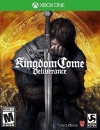Senior European officials stressed that a Russian victory in Ukraine would result in Russia posing a strategic threat to NATO security. European Union High Commissioner Josep Borrell stated on March 14 that a Russian victory in Ukraine that places Russian troops on the borders of Poland, Moldova, and the Baltic states would be an “unbearable” security cost to Europe and the United States. Borrell noted that there is no alternative to NATO to ensure European security against a Russian threat and stated that Russia’s invasion acted as a ”strategic wake-up call” for Europe to take more responsibility for its own defense capacities in the future.
French President Emmanuel Macron agreed with Borrell, stating that Russia’s war in Ukraine is ”existential for our Europe and for France.” Macron emphasized that a Russian victory in Ukraine would diminish European security and that if the situation in Ukraine deteriorates, Europe should ”be ready to make sure that Russia never wins that war.” Director-General of the Estonian Foreign Intelligence Service Kaupo Rosin stated that a war between Russia and NATO is not inevitable but that the future of Europe heavily depends on the outcome of Russia’s war in Ukraine.
Russian Security Council Deputy Chairperson Dmitry Medvedev questioned the sovereignty of Latvia, a NATO member state, and threatened Latvian President Edgars Rinkēvičs following Medvedev’s March 14 call for the total elimination of Ukraine and Ukraine's absorption into Russia under Medvedev's “peace formula.” Medvedev threatened Rinkēvičs’ life in a post on March 15 and claimed that Russia will hang Rinkēvičs alongside the current “Nazi” Ukrainian government for “wish[ing] for the death of Russia.” Medvedev also claimed that Latvia is a ”non-existent country.”
ISW previously noted that Medvedev’s sardonic and extreme March 14 ”peace formula” more explicitly outlines real and central elements of the Kremlin’s ideology and stated war aims and justifications. Medvedev’s March 15 post is a similarly explicit presentation of the Kremlin’s ideological framing of the war in Ukraine as part of Russia’s longer-term conflict with the West and NATO that Putin has previously alluded to by claiming that Russia is fighting a geopolitical “Nazi” force gaining power in the West.
Medvedev’s threats against Rinkēvičs and the current Ukrainian government follow previous Kremlin efforts to assert its right, contrary to international law, to enforce Russian federal law on officials of NATO member and former Soviet states for actions taken within the territory of their own countries where Russian courts have no jurisdiction, effectively denying the sovereignty of those states.
Russian Offensive Campaign Assessment, March 15, 2024 | Institute for the Study of War
































































